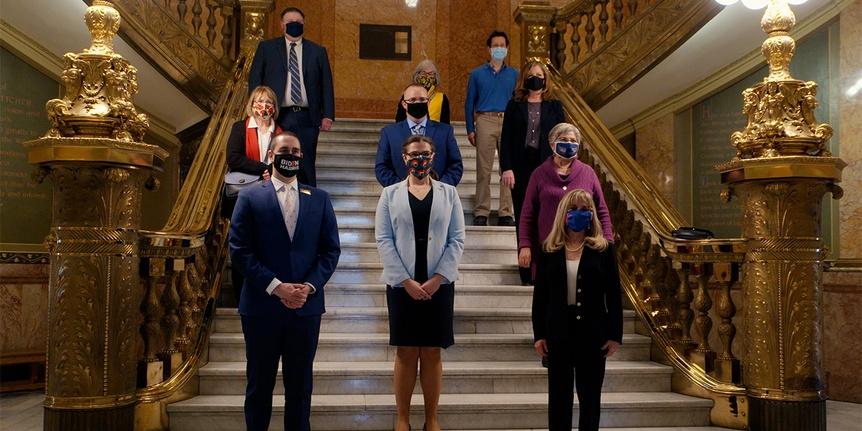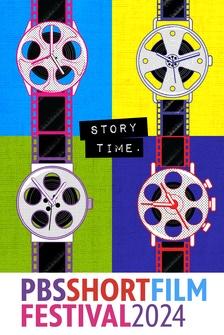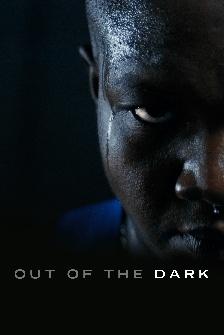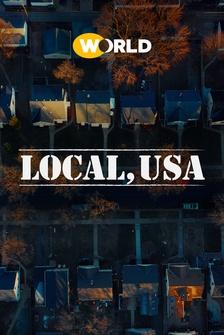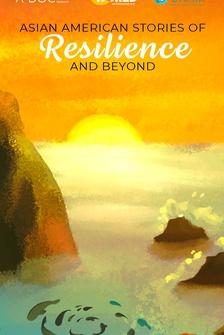- [Rupak] Previously on "Spice Road" I found the most amazing Indian food truck in a stop along a California highway.
For my next meal, I've traveled 2,500 miles and you better believe I'm hungry.
♪ Hey ♪ ♪ Adi Bah ♪ It's a city in Southern Virginia that many folks around the globe likely haven't heard of.
It gets its name from the indigenous people who lived here long before Europeans knew the Americas existed.
For hundreds of years, indigenous and African-American communities fought to protect their cultures here.
This part of the country also has special meaning for me.
It's where the love of my life, my wife, Nancy, was born and raised.
Coming back here, I think there's something to learn from this place she calls home.
How families create and hold onto their culture, even in the face of impossible odds.
I can't wait to chow down at an incredible Indian restaurant tucked away in the heart of a city surrounded by these majestic Blue Ridge Mountains.
But there's a local lady I need to visit first.
(upbeat music) ♪ ♪ Amanda Redd is my mother-in-law, and she has always been a huge inspiration to me.
An 82-year-old Black woman who grew up in the segregated south, she was a first grade school teacher turned stay-at-home mom until her husband unexpectedly passed away when Nancy was four.
And Amanda had to go overnight from zero to 60, learning how to run his business while also raising two young children.
It wasn't easy by any means, but she made it through, and she did it with a tremendous amount of grace.
No trip to these parts is complete without basking in her southern charm and gleaning some wisdom.
And it must be my lucky day because Nancy is here to join me Because I'm in this area, there's no way I can't say hi.
- (laughing) You had a lot of new experiences - I know.
- Since Rupak's been in our family, haven't you?
Because we didn't just have one wedding, we had two weddings, our Hindu ceremony on Friday night, and then we had our Christian ceremony on Saturday night.
Wasn't it fun to see how both of the cultures were similar and different at the same time?
- I was interested in learning more about your culture.
We had no idea, but there are more similarities than you think it is.
And you think, oh they're not as different as I thought they were.
- And one of the fun memories I have is at our Indian wedding to celebrate the bride, you have to put the KumKum, the red, and everybody, and so you're supposed to put the Tika on forehead, but my side of the family didn't know.
They were putting on my cheeks.
(laughing) - Let everyone know that we weren't Indian.
(all laughing) - That was the tell.
What was the significance of food in your household growing up?
- I lived out in the rural area.
We had a country store, it was right beside the house.
And we all worked in the store.
- There were always all of these exotic, specifically southern food, pigs feet, pickled eggs, sows meat, pig brains, chitlins.
And it was a way to keep our culture alive, and our customers happy.
- You know I've actually cooked some recipes from your mother.
She had a cookbook and I cooked some of those recipes.
- My mother got married very young, and she didn't know how to cook.
Rather than just guessing, she bought a cookbook, which most people in the neighborhood didn't have a cookbook 'cause buying a cookbook in that era was considered an expensive item.
My mom had my utmost admiration for saying, okay I don't know how to cook and I want to know how to cook.
- And the food is passed down from generation to generation.
- I think the last thing I made there was butterscotch rolls with little Nancy.
- [Amanda] Y'all did a great job.
- You know what's funny about time?
Food stays the same.
Those recipes hold up.
- I dare anyone to take it off of the shelf.
(laughing) It's just been a blessing to be involved with someone with a different culture, because we learn so many different things.
- Yeah.
- So we appreciate you.
- The feeling is very mutual, very mutual.
- With my heart sufficiently warmed, I'm ready to dig into some delicious Indian eats at Roanoke's Taaza, which means fresh in Hindi.
I'm gonna be meeting with the owners, Sara and Peter Radjou, and getting the full scoop on the incredible hurdles this husband and wife duo had to overcome to succeed in running a successful Indian restaurant in a part of the country where it's more grits and gravy than tikka masala.
After that, I'll be dining with another husband-wife team, my own.
Hey, look at you.
This is not a dhaba, this is very fancy, very nice, very classy.
At long last, what should we do?
- If you want try our gobi manchurian, or any other classic entrees, please we would love to have you.
- What's the gobi manchurian?
Is it like the house specialty?
- It is one of our, our very famous appetizers.
- This is a crazy idea, but could I learn how to make that?
- Sure, why not, why not?
- Oh, yes.
- Do we do it here?
Where do we do it?
- In the kitchen.
- In the back, okay, let's go.
Manchurian dishes are a hybrid of Indian and Chinese cuisine.
Legend has it that it was invented in 1975 by Nelson Wang, an Indian chef of Chinese descent.
Imagine the spicy zing of fried ginger, garlic, and green chilies.
Now add a hint of soy sauce and chili paste, and you'll get a mental taste of it.
The blending of cultures that led to this dish is an apt metaphor for what Peter and Sara are doing as Christians, from South India now living in the Southern United States.
- Welcome to my kitchen.
- Oh wow.
- We're gonna make gobi manchurian, it's Indo-Chinese kind of fusion.
- Gobi?
- Yeah, gobi cauliflower.
- Gobi cauliflower.
- I have a simple batter already made up here to add gobi to.
- Gobi in.
- Just mix it up.
- Mix it up, okay - We are gonna fry it golden brown.
Drop it one at- - One at a time.
Oh my gosh, that was- - Go closer.
- Closer, yeah that was dangerous.
That's why you're a pro.
- While this is getting cooked, we are gonna do the Manchurian sauce.
You're gonna have a little bit of oil, teaspoon of chopped garlic.
- Alright.
- Teaspoon of chopped ginger.
- Love both of these, fresh diced peppers.
I see all these ingredients, you know, it's so fresh.
- That's why we call it taaza, taaza means fresh.
- Taaza means fresh.
This is, you're living up to your name.
This is what I like about it.
- We have some Manchurian sauce already made here.
One full spoon.
- One full spoon.
- It's pretty concentrated, a touch of water.
- I can't flip the food yet.
I gotta work on that.
This is level one cooking.
A little okay - - This is the gobi.
- Here we go.
Golden brown up here.
Then mix it with this Manchurian sauce.
- That's it.
- Gorgeous, wow.
Let's plate it.
Not the most elegant, but we got it on the plate.
There we go, oh a little garnish, oh yeah.
Gobi manchurian, voila!
(simple rhythmic music) - You have to tell us how it tastes.
And you made it yourself, too.
- You made it.
- Please, hey let's not ruin it, okay guys, here we go.
Hmm.
Wow, the fresh ginger and garlic makes such a difference.
Yes, it is a crispiness of the, the gobi, the cauliflower, out of this world.
- Thank you.
- And of course, the Manchurian sauce, a little kick, a little spice, but not too much.
Oh, look, what's this?
What have we here?
Oh my gosh, And look, this is gorgeous.
This is golgappa or panipuri, right?
- Panipuri.
- And it's called that because this is a puri.
And pani means- - Water.
- Water, so I'm gonna put this water here first right?
- Yes.
- Okay - And then don't spill it on your shirt.
- Wardrobe, hello.
- This is a mint.
- Mint, okay.
Otherwise, it's gonna all sink through, right?
- Yeah.
- Yeah.
- Now all in one- - Go one shot.
You're gonna have the burst of flavors.
- That is so good.
Now this one?
- That's the chaat.
- What's in this?
- Crispy rice puffs.
- Okay.
- Onion, tomatoes, and little secret spice.
- Let's see if I can guess what the secret spices are.
Mhm, oh my gosh, it's like- - It's a little crispy, one on one end, and a little soggy on the other.
- That's exactly right.
It's crispy and soggy.
Who can do that combination?
- Only Indians can.
(heartily laughing) - Chaat is one of my favorites.
And here is 30 seconds on chaat.
Should we do 15 seconds on chaat?
Chaat, it's a snack food that combines sweet, tangy, savory, crunchy, and spicy, and chaat's not just one dish.
It's a whole category to describe a variety of different snacks.
But what they all tend to have in common, Is a dose of crispy carbs, diced boiled potatoes, chopped raw tomatoes, and onions, chutneys like tamarind and mint.
And some even add yogurt.
So next time you're at a dhaba or desi restaurant, start your eating adventure off with some chaat.
- We both are from Chennai.
We married, we came here.
He's the first in culinary in our whole family.
The passion or the love for food, that was his inspiration to start an Indian restaurant of his own.
He struggled after opening quite a few, and closing quite a few.
- How many did you open and close?
- About four.
- Like about seven.
- Seven!
- We ended up one of our worst contracts probably in 2011.
We were, you know, pawning all our jewels.
- Pawning jewels?
- Yeah, we didn't have no health insurance.
We were arguing, we were fighting.
And because we had two small kids, he went to the church, he prayed, he came back, there was a message from Roanoke Catholic School, from the principal - Saying, heard you're in this business of food, can you find me a good cafeteria manager and chef?
I came out and said, oh my god, I just prayed, and that's what he told me.
I said, maybe its for you, and I said okay.
Now I've been there for 10 years.
I love it because, you know I get to practice my skills with other cuisines.
- Food was the riskiest thing, but it ended up being your salvation.
Pawning your jewelry?
For an Indian woman, every Bollywood, you know movie shows that that's like, that's the lowest point in the movie.
- We think that's all that happens only in the movies, but sometimes it happens in real life.
- Did you buy the jewelry back or is it gone?
- No no, we got them back.
- We got the jewelry back.
- You got it back!
- If you have to follow a dream, you have to be a hundred percent behind of the person.
You... you have to be there for them.
And you have to understand what is life.
And it does not anything is not gonna be granted and just given to you.
You have to work hard for it.
- What I learned is how hard it is to make an Indian restaurant succeed in a smaller town in the south.
Peter and Sara were able to do it, because they had community.
But that community was not just South Asian, that community was faith-based.
It was connected to Peter's journey and Sara's journey.
But I know for Nancy, moving out to LA was because of me and my career, and what I wanted to do in my dreams.
And to see that paralleled in the food industry and in the restaurant business, that's beautiful.
(laughs) Let me tell you a little bit more about my wife, Nancy.
She's a host, TV show creator, and bestselling author.
But our story begins way before all that, with a pageant.
The Miss Virginia Pageant, to be exact, right here in Roanoke.
You see, like for many southern belles, pageants are in Nancy's blood.
My first introduction to the American South was getting off a plane here and immediately heading to see her compete in the Miss Virginia pageant, which she won.
For a kid from the gritty hustling streets of Harlem, the down home apple pie charm of this place, and this girl, was a seductive and much needed culture shock.
It helped me unpack my own upbringing and break free of the model minority stereotype I was buying into.
Thankfully, Nancy was there to help burst that bubble and pull the wool off my eyes.
I can't believe we're in Roanoke, after all these years.
- I know, I can't believe it either.
It's the first time you ever came to Virginia.
- Touched down in that airport, and I could not believe where I was.
- And I guess you never looked back.
- I never looked, there was something inside of me that said, I gotta go.
I gotta go see about a woman.
Oh look, it's our lovely owners.
- Hi, how are you?
- Hi.
(laughing) - So this is Peter.
- Hi.
It's so nice to meet you.
- This is Sara.
- This is my wife, Nancy.
Do you feel like there are any similarities between where you came from in South India and the South?
- Both are hospitable.
(heartily laughing) - That's good.
- What you give, what love you give, you get the same love back.
(techno music) - The bhindi, a.k.a okra.
- Rasam, oh, perfect, thank you.
Hmmm.
This rasam is like, we've got that fire in the throat, which you love when it's coming down.
It cures anything.
Like... You have a cold, have rasam.
- Mmm, oh, that's perfect.
Not only did love go in this, but really good ingredients.
- I'm gonna try some of this.
- It's very good, it's like fried potato.
- That's so good, hold on.
- With a lot of spice and kick.
And when you dip it in- - In the dal?
- In the dal, it's incredible.
It's spicy.
- Oh my god, this is so good.
- It's perfect.
And it's been really interesting over the years to see how our cultures entwine, and are vastly different.
- I come from what's called a model minority.
We sometimes compromised ourselves too much and gave up who we were in the process, and gave up our identity a little bit.
And it eats at you.
And it has done that to me, and people I know.
- Like I think that you're brought up sometimes to even though you're bringing so much to this country, right?
You're grateful for the opportunity.
We were fighting for the rights we deserve and have been withheld from us, against our will.
Saying no, holding your ground, being confident and strong is very important.
And being comfortable with who you are, and not letting the world tell you anything different.
- Is there something that you feel Indian culture taught you?
- What you've been doing, your families have been doing, for generation upon generation, upon generation.
So when you are blowing in the conch, or when you're reciting the mantras, this is something that someone related to you has done for thousands of years.
Whereas we are constantly in my family, rebuilding traditions.
It really resonated when we had kids, I wanted to make sure that we had traditions, Black traditions, to go toe-to-toe with the Indian traditions.
Once I realized that it wasn't something that I should be concerned about, me losing my culture, but it's a compliment and a North Star of sorts, an exciting opportunity to have a blueprint so that our children would have two strong cultures.
Their children would have two strong cultures.
And centuries from now, we're breaking the cycle of a broken cycle, if that makes sense.
- Yeah, yeah, that's beautifully put.
- Oh, look at that red.
- That is real vindaloo.
(upbeat bass music) - What's the misinterpretation about small towns?
- There are no big dreams, and that there are no big opportunities.
In many situations, for many types of people, there are more opportunities in a small town, but you have to have the support system around you.
It is in your time of need that you really value community.
And in the south, in these small towns, community is where you thrive.
(upbeat bass music) - Food can help build community, even after unspeakable loss.
This trip has underlined the urgency of my journey.
This show is my attempt to write a family cookbook and make sense of the past.
Speaking of which, I think it's time to head there, back to my hometown of New York to visit my parents.
Some deeper questions are stirring up in my mind and this feels as good a moment as any, to get some answers from the source.
Whatever I learn, at least I know the food, will be good.
(upbeat bass music) (upbeat bass music continues)

